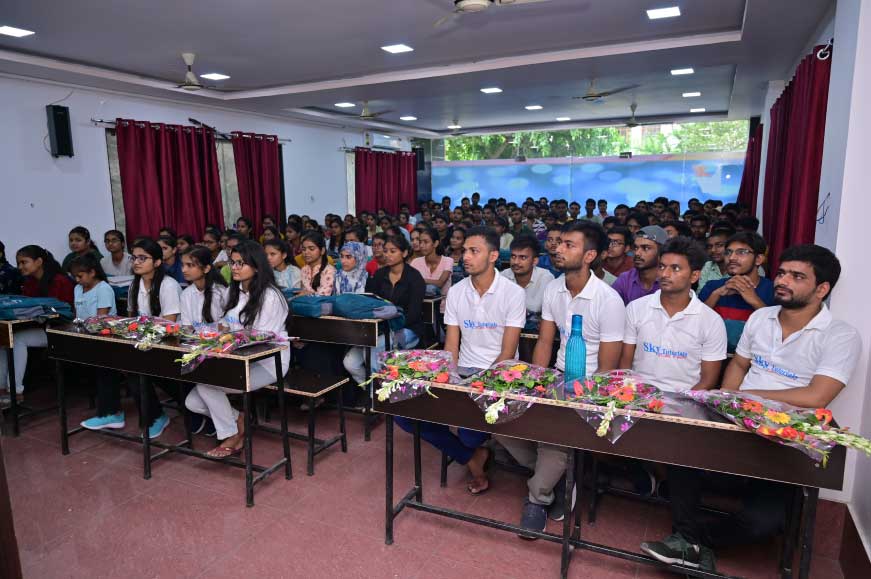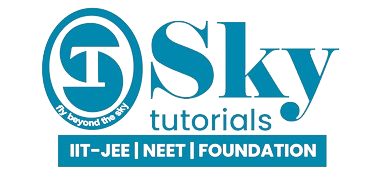
Overview
Sky Tutorials is a renowned coaching institute in Varanasi that specializes in preparing students for competitive exams like NEET, IIT-JEE. Their expert faculty and comprehensive study material have helped students achieve their dreams of getting into top medical and engineering colleges.
If you are looking for the best NEET coaching in Varanasi, Sky Tutorials should be your top choice. Their NEET coaching program is designed to cover all aspects of the syllabus, provide regular tests and assessments, and ensure that students are well-prepared for the exam. The faculty at Sky Tutorials is experienced and dedicated to helping students achieve their goals.
In addition to NEET coaching, Sky Tutorials also offers JEE coaching, , and other programs to help students excel in their academic pursuits.
Sky Tutorials – Best NEET Coaching in Varanasi | JEE Coaching
Looking for the best NEET coaching in Varanasi? Look no further than Sky Tutorials. Our expert faculty, comprehensive study material, and regular tests and assessments ensure that our students are well-prepared for the exam. We also offer JEE coaching, Olympiad coaching, and other programs to help students excel in their academic pursuits.
Difference between JEE Mains and JEE Advanced
JEE (Joint Entrance Examination) has been held in the forms of JEE Main and JEE Advanced for undergraduate engineering programmes like B.Tech, B.E, B.Arch, and B.Plan in IITs, NITs, IIITs, and other government institutions.
The NTA is in charge of JEE Main, while the IITs alternately oversee JEE Advanced. Students must pass JEE Main in order to be eligible to take the JEE Advanced exam. Moreover, JEE Mains features a paper.
Papers 2 and 3, which are for B. Arch. and B. Planning, respectively.
Difference between JEE Mains and JEE Advanced
Between JEE Main and JEE Advanced, there are a number of classifications. Here are some of the key variations:
Difficulty level:
In contrast to JEE Advanced, which demands an in-depth knowledge of topics and in which most questions involve three or more concepts, JEE Main measures your understanding, speed, and accuracy but also has a few formula-based problems. Because the questions in JEE Advanced are more complex and demand a deeper understanding of topics and concentration, it is harder than JEE Mains. Each and every idea you master in physics, chemistry, and mathematics will be tested in the JEE Advanced paper.
Types of Questions:
Multiple-choice questions (MCQs) and numerical value-based questions make up JEE Main, while MCQs, numerical value-based questions, and integer type questions make up JEE Advanced. There are multiple correct answers for some questions in JEE Advanced portions, however only one answer is correct for each question in JEE Mains.
JEE Mains Paper Pattern
JEE Mains Paper 1 JEE Mains Paper 2 JEE Mains Paper 3
Subjects Physics, Chem & Maths Aptitude, Maths & Drawing Aptitude, Maths & Drawing
Mode of Online Pen & Paper Online
Exam
Language English, Hindi & Gujrati English, Hindi & Gujrati English, Hindi & Gujrati
Duration 3 Hours 3 Hours 3 Hours
Marks 300 400 400
Marking +4 for correct answer, +4 for correct answer, +4 for correct answer,
-1 for incorrect answer & -1 for incorrect answer & -1 for incorrect answer &
0 for unanswered 0 for unanswered 0 for unanswered
Scheme questions questions questions
JEE Advanced Paper Pattern
Paper 1 Paper 2
Subjects Physics, Chem & Maths Physics, Chem & Maths
Mode of Online Online
Exam
Language English & Hindi English & Hind
Duration 3 Hours 3 Hours
Marks 183 (varies slightly each year) 183
Marking The exam has a concept of full marks, The exam has a concept
Scheme partial and zero marks. of full marks,
partial and zero marks.
Number of Questions:
JEE Main has 75 questions, of which 25 from each of the three sections—Physics, Chemistry, and Mathematics—must be answered correctly.
There are a total of 54 questions in the two examinations for JEE Advanced, comprising 18 questions each from physics, chemistry, and mathematics.
Syllabus coverage
While the CBSE curriculum for grades 11 and 12 is covered in the JEE Main syllabus, JEE Advanced incorporates a few extra topics and goes beyond the CBSE curriculum.
Topics in Advanced but not in Mains Topics in Mains but not in Advanced
Physics Thermal Physics Electronic Devices, Electromagnetic waves, Communication Systems
Chemistry Electrochemistry: Equivalent Conductivity,
Nuclear chemistry Biomolecules, Chemistry in Everyday Life
Mathematics Sets, Relations and Functions,
Trigonometry, Mathematics reasoning.
Number of Attempts
- Each student is limited to a certain number of JEE Main and JEE Advanced attempts.
- Candidates may enter JEE Main three times. Attempting both sessions in the same year counts as one attempt. As a result, if you choose, you can continue to appear for two more years after you finish your 12th grade year.
- On the other hand, students are only permitted to take the JEE Advanced exam twice in a row. You can therefore apply in the year that you finish your 12th grade education and then apply the following year only.
In conclusion, JEE Advanced is a significantly more difficult exam than JEE Main, with more tough questions, a different question paper layout, and a more complicated marking method. After you have gone over the fundamentals, the best strategy to prepare for both JEE Main and JEE Advanced is to basically concentrate on practicing the questions from each chapter. Ideally, you should try to practice at least 300 questions from each chapter of the course material. If you do this, you’ll be able to use your knowledge and problem-solving abilities to their highest extent in the JEE Mains or JEE Advanced exam.

